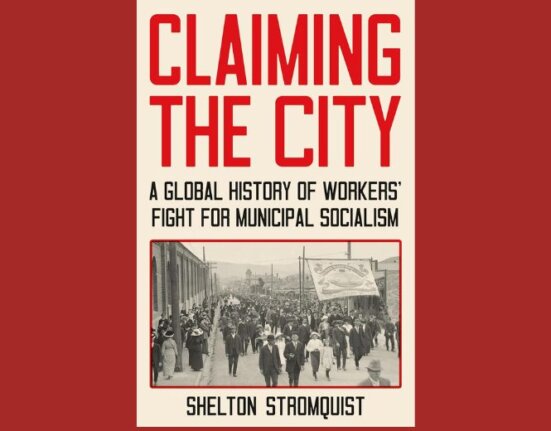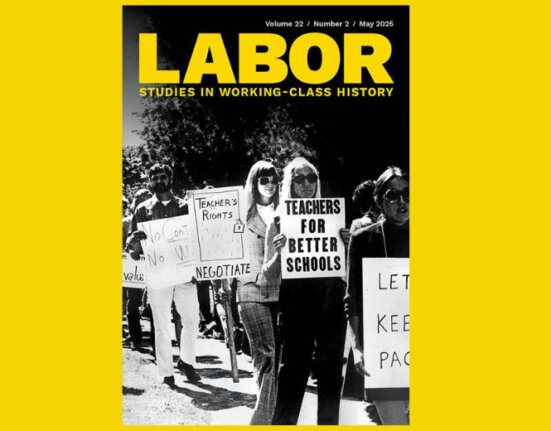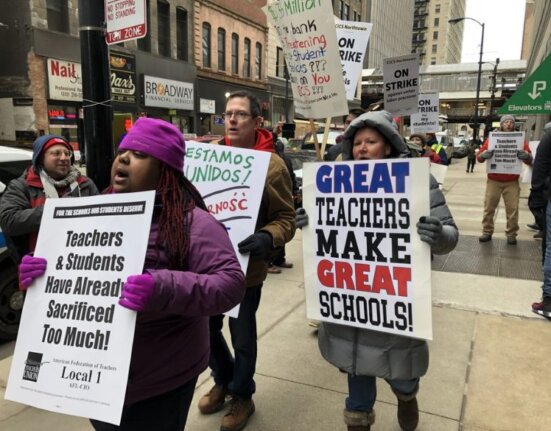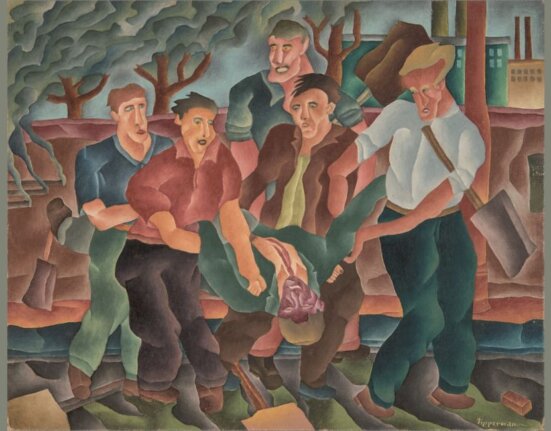On December 11 around 13,000 trade unionists and their allies gathered outside the capitol building in Lansing, Michigan to protest anti-union “right-to-work” legislation. In spite of the anger and militancy of the protest the legislation was passed and signed into law that day making Michigan the twenty-fourth “right-to-work” state. This sneak attack on Michigan’s workers by the Republican dominated state legislature and its corporate backers caught the labor movement flat footed. With December 11 being the first day that Governor Rick Snyder could sign the bill into law, the labor movement rapidly mobilized for a mass protest.
On the morning of December 11 I made the drive from Fort Wayne to Lansing to participate in the day’s actions. I had participated in last year’s Wisconsin protests, traveling from Chicago to Madison a few times, and had hoped to find the same level of energy and fight back in Lansing. Driving into downtown Lansing the visible signs of a large protest were apparent with contingents of unionists and supporters, signs in hand, walking toward the capitol. However, Madison this was not.
Upon making it to the capitol ground over 10,000 protestors filled the area with around 2500 inside. It was not the number of people that made Lansing different than Madison (Madison had started in the early days with similar numbers before growing to 150,000) – it was the mood.
In contrast to Madison where the energy of the protests made one feel that we could win and that a new dawn had arrived for the labor movement, in Lansing a feeling of resigned defeat hung in the air. Though resigned to defeat on this battle, the crowd was not defeated as many showed a willingness to fight. This is Michigan after all, many people have older family members who fought and spilt blood for unions and were raised on these stories.
Those that I talked to expressed intense anger and frustration on how it could ever come to this in Michigan. The anger was aimed at the right wing legislators who introduced the legislation and the corporate heads who financed the attack such as the Koch brothers and Amway executive Dick DeVos. However, much of the frustration was directed toward the union tops for not organizing more than just symbolic actions.
There was a clear divide between the desire of most workers to fight and the strategy put forward by the union officialdom. From the speaker’s platform, official after official spoke of the need for action, organizing, and even raising hell. Though this action and hell raising was not meant for winning today’s battle, but for the 2014 election cycle. As Karla Swift, president of the Michigan AFL-CIO, stated, “Today is a day of action to plan ahead for the next two years.”
While many people echoed the union tops call to vote in 2014, there was also a brewing sentiment for direct action. Some direct action did materialize. This was as seen in the hundreds of unionist who tore down the provocatively placed Americans for Prosperity tent, in the protestors who stood in the face of and forced back the riot cops protecting the state building containing the governor’s office, and in the three school districts in Detroit that closed due to the large number of teachers who skipped work to join the protest. Unfortunately, this simmering potential was not utilized.
In the last two years the conservative Right in a well financed, thought out, and targeted campaign has succeeded in passing anti-union legislation in Wisconsin, Indiana, and Michigan. Thus far the union leadership has responded with a purely electoral strategy. In Wisconsin mass action on the streets was diverted into a recall campaign, in Indiana the AFL-CIO leadership discouraged protests and said “We’ll get them in November” (we didn’t), and now in Michigan we hear “We’ll get them in 2014.”
I do not see these losses as further signs of a defeated and increasingly irrelevant labor movement. The thousands who turned out to protest in these states and the recent strike victory of the Chicago Teachers Union have shown the opposite. Labor is on the rise again. What has been defeated is the union tops reliance on electing Democrats as any kind of a winning strategy. What won us our now fleeting union rights was a fighting labor movement that did not rely purely on elections, but also on mass action and social movement unionism as witnessed in the 1870s through the 1930s. The way forward for the labor movement is right there in our past.







1 Comment
Comments are closed.